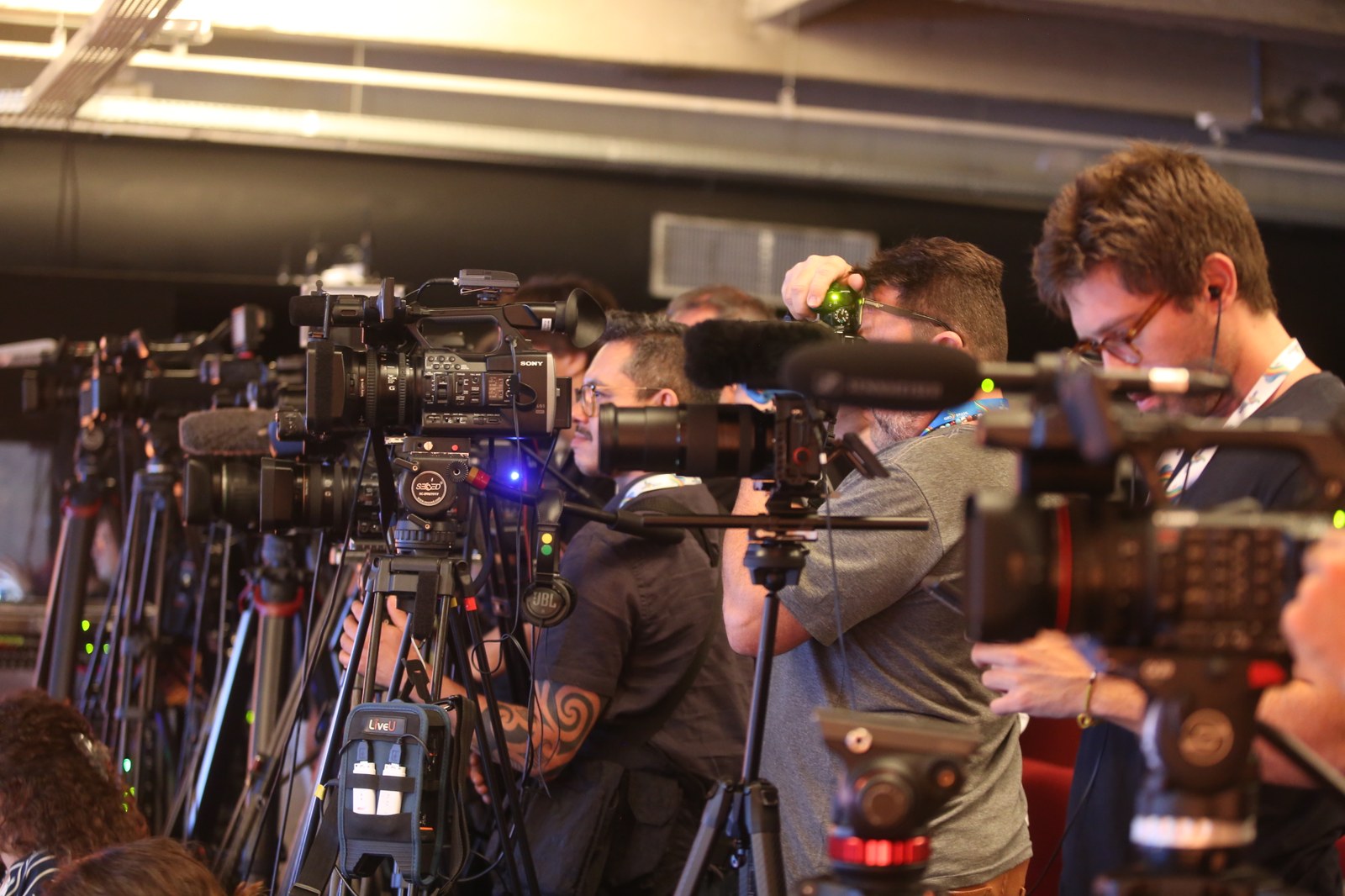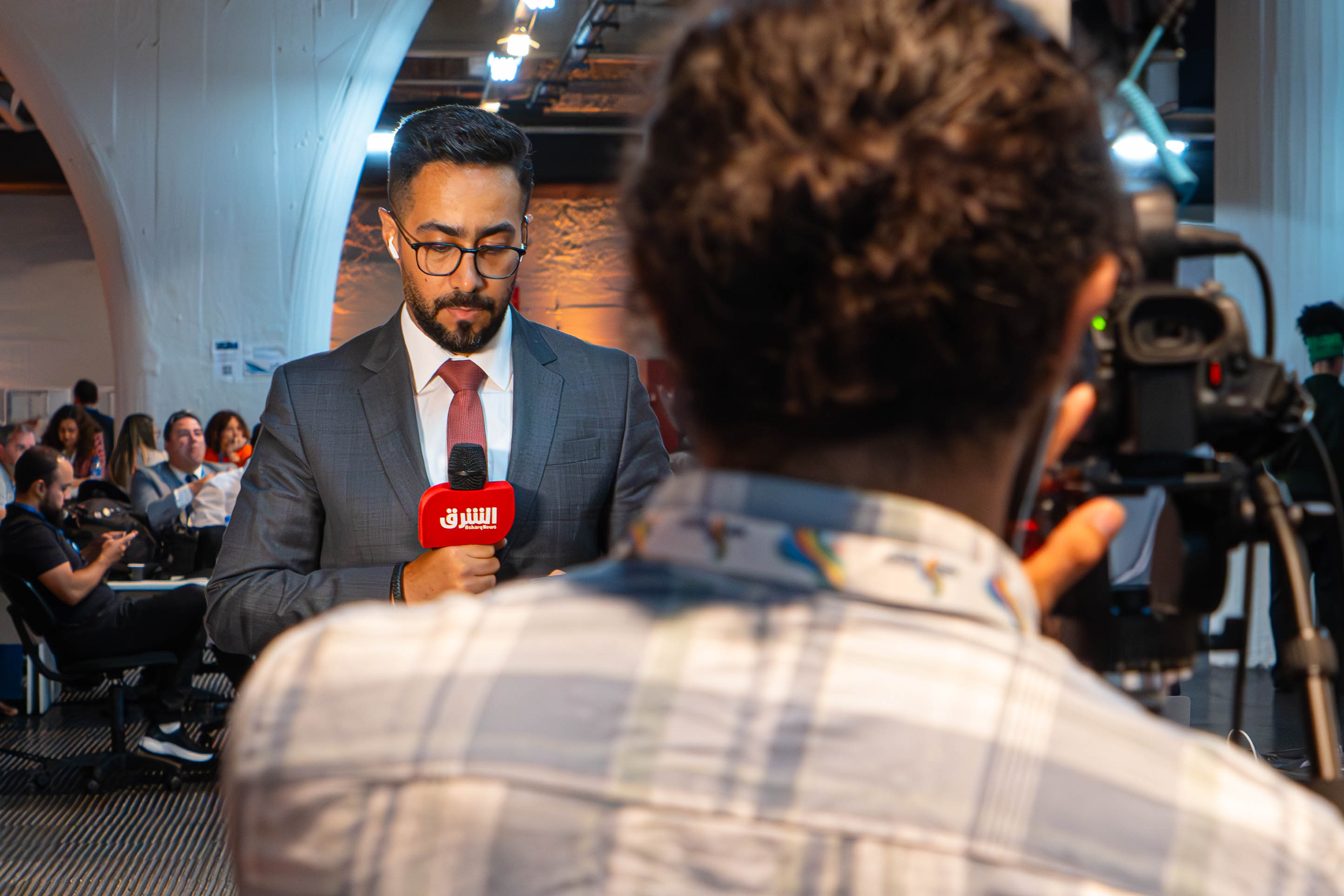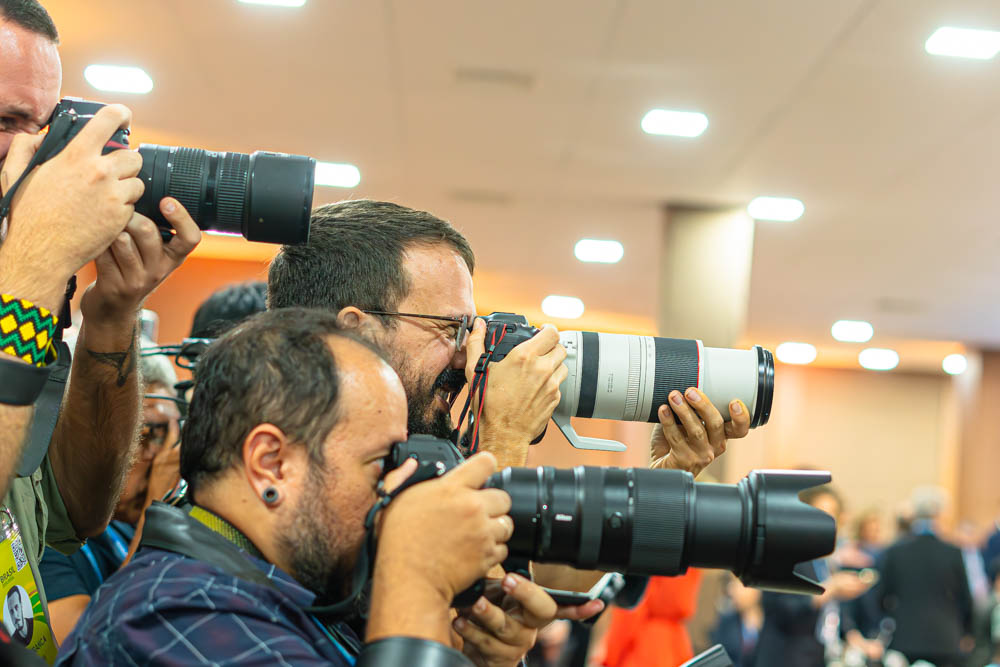Around 800 professionals from 28 countries covered the G20 ministerial meetings held in Rio de Janeiro and São Paulo in February, bringing priority issues proposed by the Brazilian presidency of the Forum to all corners of the world.

Around 800 press professionals from 28 countries gathered in February to cover the first G20 ministerial meetings under the Brazilian presidency, held in the breathtaking setting of Rio de Janeiro, where mountains meet the sea, and the elegant modernist curves of the São Paulo Biennial building.
Cameramen, photographers, reporters, editors, writers, and presenters used cameras, microphones, cell phones, and laptop computers to turn every detail into news, every speech into a story, and every interview into a report on today's most important political and economic forum. Between interviews, notes and flashes, the story of the meeting that is assisting in the resolution of conflicts and shaping the world's destinies was told.
The journalists present discussed a variety of topics, including ongoing international tensions such as the conflicts in Ukraine and the Gaza Strip, as well as the priorities raised by Brazil's forum presidency, such as the fight against hunger and poverty and the reform of global governance institutions.
Journalist Hani Reda Aldrsani, from Saudi Arabia's Asharq News, is in Brasil to cover the first G20 ministerial meeting. "Brasil seeks to position itself as an intermediary on global issues, especially economic ones, during the G20 discussions," he stressed. According to him, the Brazilian government is attempting to reconcile different opinions in order to achieve satisfactory outcomes on major issues that include global conflicts, with a focus on the Middle East. He hopes that President Lula's presence will help bring world leaders closer together.
Ione Wells, a correspondent for BBC News in London, England, highlighted the diversity of topics covered by international media outlets. She stressed the importance of covering the event so that the discussions reach a global audience and shared her impressions of the reception in Rio de Janeiro and the relevance of the final G20 Summit in November.
"I believe that for some of the leaders here, this will be their first visit to Rio to familiarize themselves with the city and the country. It's great to be here. The final G20 Summit in November attracts attention because of the presence of world leaders, and, for us, it will be the main focus of the year," she said.

News, bulletins, coffees, discussions and exchanges
While covering the G20, journalists met and talked with one another. Joan Royo Gual, a Spanish correspondent working for Sputnik, Russia's international news agency, took advantage of the meeting to exchange ideas and experiences with colleagues. "For professionals, working at such a significant event offers the opportunity to make connections and obtain information from sources close to world Leaders," he pointed out.
He pointed out that Brazil's agendas at the G20, such as the fight against hunger and poverty and environmental issues, arouse global interest. "I think the world expects this to be a very central issue. The environment and climate change have gained a lot of weight in recent years and it's an agenda very much associated with Brazil. The world thinks about Brazil and it thinks about the environment, it thinks about the Amazon. These are two agendas that are very specific to the country and that the world is very interested in," he highlights.
Nádia Pontes, a Brazilian correspondent for Deutsche Welle (DW) in Germany, emphasizes the importance of Brazil applying to mediate the conflicts and bringing issues such as the fight against hunger and cooperation in the Global South into the debate. "Colleagues from Germany and correspondents in Latin America are keeping a close eye on the developments at the meetings, which bring together authorities. It's interesting to follow how Brazil tries to position itself in this role of protagonist, but also bringing an agenda of fighting hunger and poverty to this group. So, of course, there's a lot of interest, I think from the global press, in following the developments and being present," she says.

Telesur, a television channel that broadcasts to Latin American and Caribbean countries, was present in Rio de Janeiro. According to reporter André Vieira, in the context of the G20, Brazil is gaining prominence and positioning itself as a global protagonist, bringing up relevant issues such as the fight against hunger and the need for reforms in global governance. "One of the highlights of the coverage was President Lula's position on the conflict in Gaza, demonstrating the seriousness of the situation and highlighting Brazil's role in mediating international crises", he says.
André reports that Rio de Janeiro's infrastructure and hospitality have been praised by journalists, while the decentralization of the events to other Brazilian cities is seen as an opportunity to show the country's diversity. "I think it's also an important moment for us journalists to be in contact with these different media. So it's also important for us to be here and see these visions. Looking to the future, Telesur plans to cover as many G20-related events as possible, both in person and virtually, seeking to broaden the debate on issues such as sustainability and the environment, as well as reporting on the leaders' proposals for its predominantly Latin American and Caribbean audience", he says.
The world leaders have left Rio de Janeiro and São Paulo, but the national and international press remains attentive, ready to continue following the developments of the G20 and analyzing its impact on the global scenario. News about the events and discussions that have taken place at the forum will continue to be available in real time to a global audience hungry for information and solutions to the main problems faced by the population.






